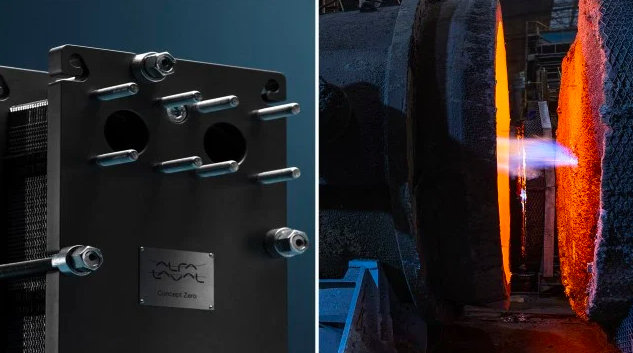Alfa Laval and SSAB collaborate to support global carbon neutral supply chain
Alfa Laval will now incorporate SSAB’s unique fossil carbon emission free and recycled steel (SSAB Zero), into its heat exchangers. This represents an important milestone towards achieving a global carbon neutral supply chain.

Key highlights:
- Tackling global carbon emissions: Steel production accounts for 7 percent of the world's carbon emissions, making it a critical industry in the fight against climate change. The collaboration between Alfa Laval and SSAB aims to address this challenge, with emissions being predominantly generated from a limited number of locations.
- Reducing carbon footprint: By integrating SSAB's fossil carbon emission free, recycled steel, produced through renewable-based processes, into Alfa Laval's heat exchangers, the collaboration takes an important step towards achieving a global carbon neutral supply chain.
- Double impact on global emissions: Initially more than 100 heat exchangers will be delivered this year – and significantly more the coming years. These heat exchangers will be deployed to improve energy efficiency in numerous areas such as HVAC, marine, process and food industries.
"Alfa Laval's commitment to sustainability is further strengthened through our collaboration with SSAB. By incorporating their recycled steel in our heat exchangers, we are not only reducing our own carbon footprint but also driving the entire value chain towards a cleaner and more sustainable future,” says Thomas Møller, President of the Energy Division at Alfa Laval.
”SSAB is really accelerating the roll-out of zero-emission steel with our newest product SSAB Zero. We are now expanding our partnership with Alfa Laval to include SSAB Zero, and can look forward to visible results already this year. This is great news, and also allows us to help mitigate climate change even faster,” says Thomas Hörnfeldt, Head of Sustainable Business at SSAB.
Did you know?
Energy efficiency is a key part of the Paris Agreement and could deliver more than 40 percent of the greenhouse gas emissions savings over the next 20 years, with 50 percent of those savings coming from industry.
www.alfalaval.com

